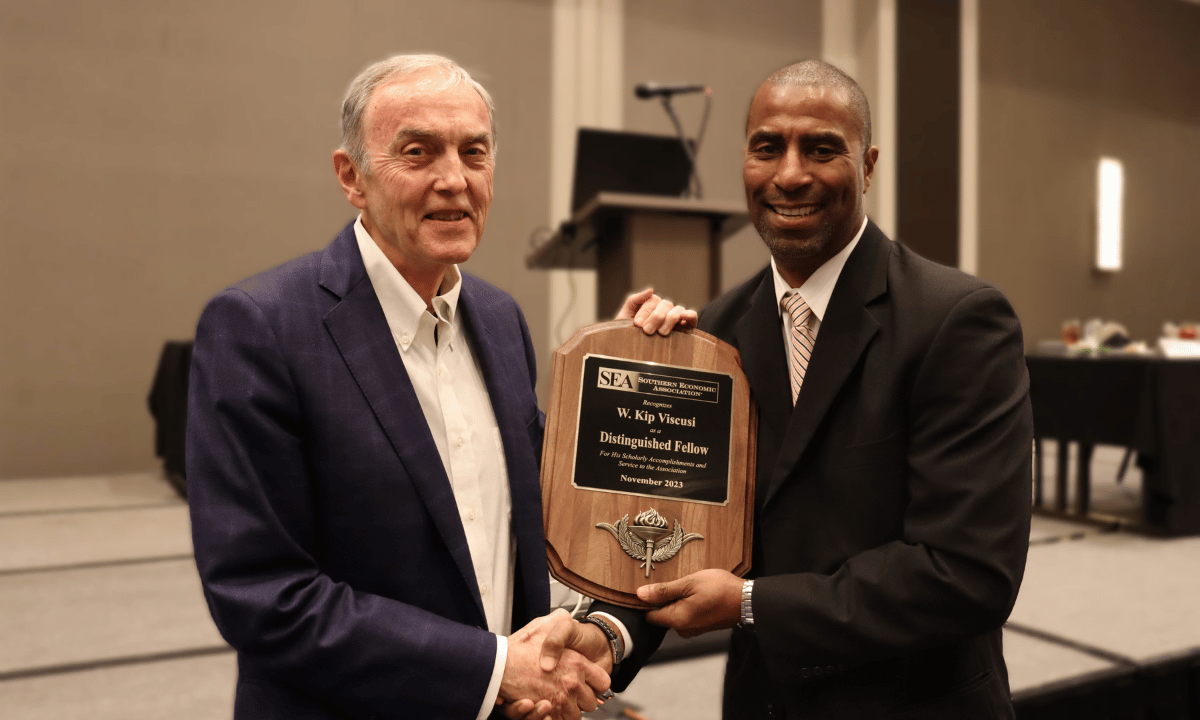
J.D./Ph.D. candidate, Blair Druhan Bullock, successfully defended her dissertation, “Judicial and Agency Enforcement of Nondiscrimination Laws,” on March 13. After six years of study, Bullock will graduate with both her J.D. and her Ph.D. in Law and Economics at Commencement in May.
Bullock’s advisor is Professor of Law and Economics Joni Hersch. Professors Michael Selmi (George Washington University Law School), Kevin Stack, and W. Kip Viscusi comprise the rest of her dissertation committee.
Summary of dissertation
Each branch of the federal government has a role in enforcing the federal nondiscrimination statutes. Congress creates and amends the statutes; the federal courts apply the law when parties file lawsuits under the statutes; and the Equal Employment Opportunity Commission, a federal agency, administers and investigates each charge filed under the statutes and litigates cases of importance. This dissertation empirically analyzes the roles of the federal courts and the EEOC. In Chapter 1, I provide empirical evidence that supports the Supreme Court’s vicariously liability standard for supervisor harassment, but not the lower courts’ expansion of an affirmative defense to liability when a victim does not report: employees who are harassed by their supervisor and those who report the harassment are statistically significantly more likely to experience an adverse action following the harassment as compared to those harassed by their coworker and those who do not report. In Chapter 2, I address the concern over the number of nuisance suits filed with the EEOC and federal courts, as expressed by the Supreme Court in University of Texas Southwestern Medical Center v. Nassar. This chapter empirically shows for the first time that the federal court decisions can increase or decrease the presence of nuisance suits filed with the EEOC depending on the nature of the case—liberal or strict. I conclude with Chapter 3 and provide empirical evidence that suggests that higher rates of race charges filed with the EEOC have a positive effect on black wages in the early twenty-first century.


